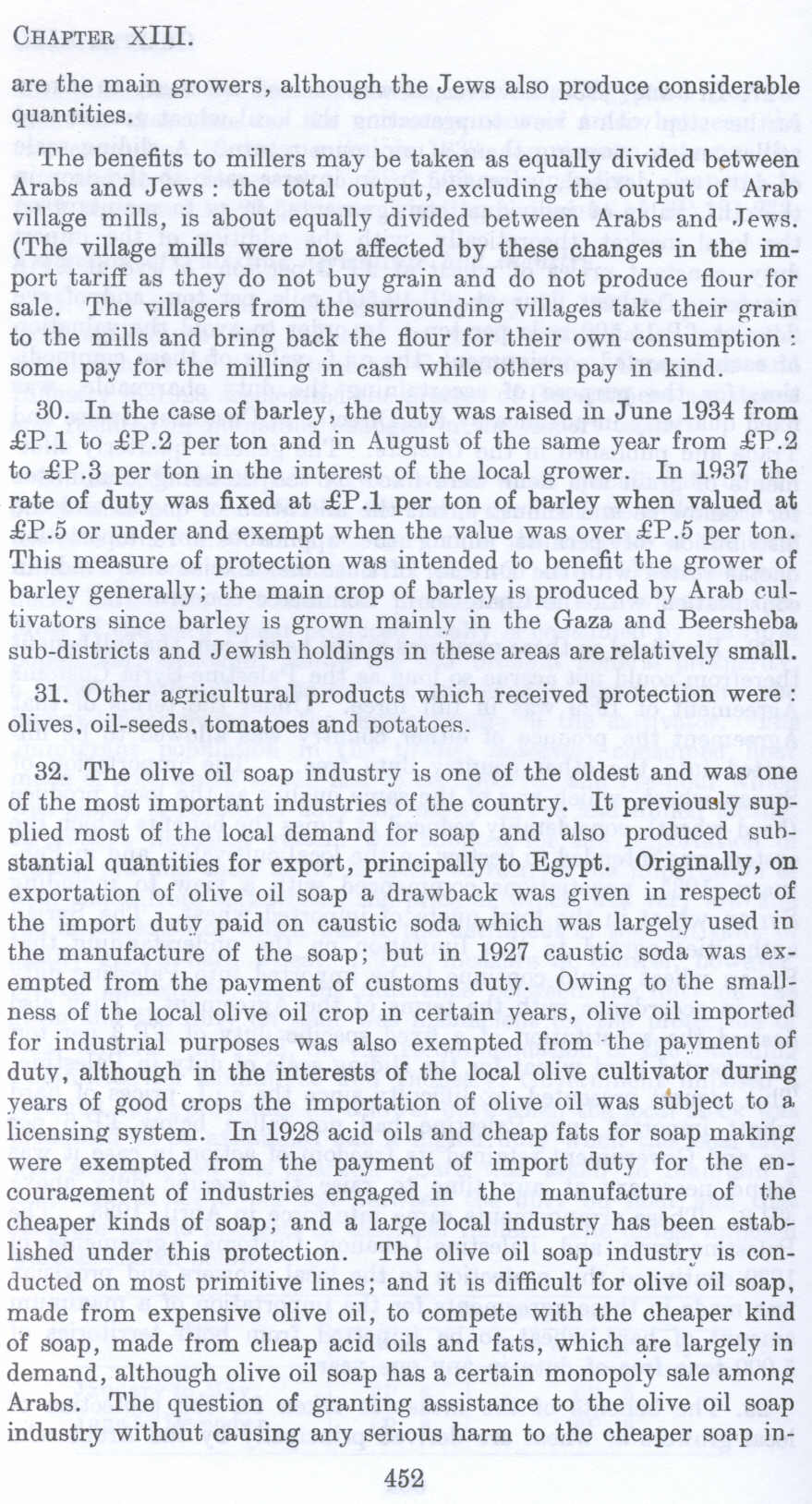| Prev | Next |  |
| Prev | Next |
| PalestineRemembered | About Us | Oral History | العربية | |
| Pictures | Zionist FAQs | Haavara | Maps | |
| Search |
| Camps |
| Districts |
| Acre |
| Baysan |
| Beersheba |
| Bethlehem |
| Gaza |
| Haifa |
| Hebron |
| Jaffa |
| Jericho |
| Jerusalem |
| Jinin |
| Nablus |
| Nazareth |
| Ramallah |
| al-Ramla |
| Safad |
| Tiberias |
| Tulkarm |
| Donate |
| Contact |
| Profile |
| Videos |
British Mandate: A Survey of Palestine: Volume I - Page 452 |
Disclaimer
The above documents, article, interviews, movies, podcasts, or stories reflects solely the research and opinions of its authors. PalestineRemembered.com makes its best effort to validate its contents.


Post Your Comment
*It should be NOTED that your email address won't be shared, and all communications between members will be routed via the website's mail server.
are the main growers, although the Jews also produce considerable quantities.
The benefits to millers may be taken as equally divided between Arabs and Jews: the total output, excluding the output of Arab village mills, is about equally divided between Arabs and Jews. (The village mills were not affected by these changes in the import tariff as they do not buy grain and do not produce flour for sale. The villagers from the surrounding villages take their grain to the mills and bring back the flour for their own consumption : some pay for the milling in cash while others pay in kind.
30. In the case of barley, the duty was raised in June 1934 from £P.1 to £P.2 per ton and in August of the same year from £P.2 to £P .3 per ton in the interest of the local grower. In 1937 the rate of duty was fixed at £P .1 per ton of barley when valued at £P .5 or under and exempt when the value was over £P .5 per ton. This measure of protection was intended to benefit the grower of barley generally; the main crop of barley is produced by Arab cultivators since barley is grown mainly in the Gaza and Beersheba sub-districts and Jewish holdings in these areas are relatively small.
31. Other agricultural products which received protection were : olives, oil-seeds. tomatoes and potatoes.
32. The olive oil soap industry is one of the oldest and was one of the most important industries of the country. It previously supplied most of the local demand for soap and also produced substantial quantities for export, principally to Egypt. Originally, on exportation of olive oil soap a drawback was given in respect of the import duty paid on caustic soda which was largely used in the manufacture of the soap; but in 1927 caustic soda was exempted from the payment of customs duty. Owing to the smallness of the local olive oil crop in certain years, olive oil imported for industrial purposes was also exempted from •the payment of duty, although in the interests of the local olive cultivator during years of good crops the importation of olive oil was subject to "' licensing system. In 1928 acid oils and cheap fats for soap making were exempted from the payment of import duty for the encouragement of industries engaged in the manufacture of the cheaper kinds of soap; and a large local industry has been established under this protection. The olive oil soap industry is conducted on most primitive lines; and it is difficult for olive oil soap, made from expensive olive oil, to compete with the cheaper kind of soap, made from cheap acid oils and fats, which are largely in demand, although olive oil soap has a certain monopoly sale among Arabs. The question of granting assistance to the olive oil soap industry without causing any serious harm to the cheaper soap in-
Page 452